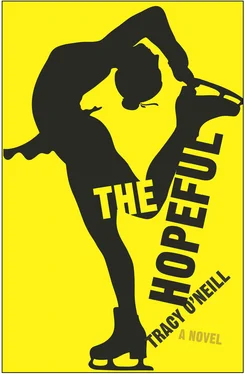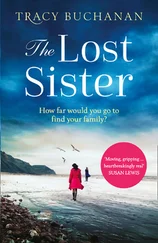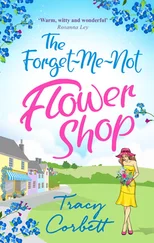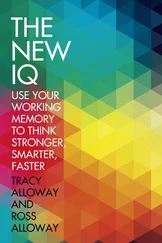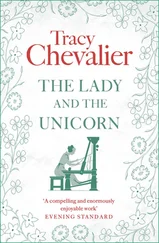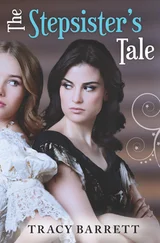“Cooking break?” I asked.
“I was looking for a place to hide the catalogues, and your father had left the most boring underwater nature show on,” she said. “Anyway, I can look, can’t I?”
“Ted Bundy is not insane,” said a doctor on television. “He was wildly calculating. He devised plans, implemented them, met his objectives. In short he functioned utterly reasonably, at least within the framework of his particular brand of sadistic logic.”
Wasn’t that enviable, I thought, to have the mind within one’s jurisdiction? I, for one, had had to command my mind like a dog. But my mind was not a pack animal.
For a few minutes, my mother and I stood watching the experts together, and I noticed in the shifting colored lights of the television swarming over her face, how beautiful she was. In the blue focus of her eyes on the screen, there was something almost happy, and I realized that it made me almost happy to see her almost happy, which is to say that I loved her. So closely was I watching her, it was a surprise when the doorbell rang.
“The one time they’re on time they’re early!” my mother exclaimed as she headed towards the door. The beautiful blue expression had left her.
We all sat in front of the television, waiting for the turkey to finish baking. Uncle Ron’s second wife, Joyce, kissed and smothered me into her, sweet and circling as a donut. She had joined Weight Watchers and she explained the point system to me. She’d thought it would be easy until issues like the difference between yams and sweet potatoes arose.
“The sweet potato is not even a member of the Dioscorea genus,” my father explained.
“Did you say diarrhea?” Uncle Ron asked. He looked around the living room expecting to observe us all laughing, but we weren’t. Lucy wasn’t there, having called the week before to say she wasn’t sure she could get her shift off at the diner because they had to stay open for people who didn’t have anyone who wanted them around on the holiday, but Mark was. He began urging restitution, but my mother’s family thought there was a statute of limitation to justice; it had been over two hundred years.
“They appropriated land from people who didn’t conceive of sovereignty,” Mark told Mo and Uncle Snowden. “The authority to govern themselves was taken away from people who didn’t conceive of self-rule as usurpable at all.”
“That’s natural selection,” Mo said. “Haven’t you heard of survival of the fittest?”
“You’re fat but you’re still here,” I interjected.
“Mo has put on a few because he stopped taking drugs. We all as a family need to support his decision. Ali, tell Mo you support his decision,” my mother said.
“I support your decision,” I said, though I thought fat and sober sounded like the dud decision compared with skinny and high. Anyway, I wanted to make the afternoon easier for my mother.
“And please, Mark, No Native Americans.”
“Spoken like a typical American,” he said. The anger was familiar but the degree was not. “What about Ali?”
My mother turned to me. “Those people aren’t who you are anyway. They’re only how you were born.” She raised her voice to make sure everyone in the room could hear, and there was a twitch in her as though she was the one taking amphetamines.
“It’s true,” I said. “I’m not those.”
“But you know you’re these , right?” My mother hugged her elbows to herself. She wouldn’t even look at Mark now.
“Political Correctness Officer Orrechio resigns his duty,” I said and gave Mark a look. It didn’t matter if he was right. I’d never quite be like my mother’s family, so I had to just believe I could be anyone and that that anyone would be a champion.
I left the room to take another amphetamine, since the one I’d taken earlier hadn’t taken effect. For the last couple of hours, I’d been wondering if I’d tricked myself into thinking I’d taken one when I hadn’t, if I’d forgotten. But I could never forget what I wanted. That had always been my problem. Which I suppose is why I put on my skates for a few minutes. They were custom boots, totally molded to the nubs and bones, the length and width and height of my feet. As a kid, I’d continued to skate in boots two sizes too small one year when I was growing to save myself from the pain of breaking in new skates. But these had been made not only for me but around me. To wear them would be to more meaningfully enact that phrase that you couldn’t judge someone without first walking a mile in her shoes. I loved to strap them as tight as possible. It was to understand myself.
Good skate boots act like comas. Three, six, seven years in them and your muscles don’t remember how to work. The stronger the boot, the weaker you are when you’re done. The tighter their hold, the limper your stand when you slip on loafers. For every action, there is an equal and opposite reaction, and when I was skating, I’d worried they were weakening. So I sat in the backseat drawing infinities with therapy bands attached to my feet, thinking of the motivational laminate on my trainer’s wall: “Atrophy is no prize.” Sometimes I focused so much on the exercises in the car I forgot there was conversation happening around me. This was why my father first began turning the radio to the Long Distance Dedications: the coma of strong boots rendered me far away in mind, if not body. Now I regretted not taking advantage of those moments with him, those moments when he was still willing to be close.
When I returned to the living room, Mark was telling the Papago legend of a creator who compensated children for their eventual decrepitude with a bag full of gathered colors called butterflies. Their songs wound so beautifully between trees that the birds protested in jealous rage, and this God was forced to silence their trills for the peace of the world.
“Where is mom?” I asked. No one knew. We’d lost her somewhere between creation myths and righting wrongs. I looked outside, but her car wasn’t in the driveway.
I hid from the family in the kitchen and looked at the sweating plastic wrapped over dishes of broccoli and hot, jiggling mayonnaise; scabby breadcrumbs laid atop green beans; gelatinous gravy congealing over wrinkled peas. I was going to be sick. Then somewhere in the web of blame spinning wildly between guests, the phone rang.
“Give thanks, my love,” Aunt Miranda said when I picked up. “How is everyone? How is your mother? Please tell me not normal, as we both know what normal for her is during the holiday.”
“Well.”
“Oh God, the hysterics ,” Aunt Miranda said. I think she knew how much my mother hated her for hurting her brother. What she didn’t know was that once my mother had told me that if I wasn’t careful I would end up like Aunt Miranda, a lonely middle-aged woman with an ended career and no family.
“She says she doesn’t want any talk about Native Americans. She says I’m not those people.”
“Well of course that’s not quite true at all. You have two mothers. You’re akin to the one by biology and the other habit, and neither is better than the other. They’re two hemispheres, you an equator. But of course this isn’t a lecture. I, of all to lecture! What I mean to say is we have far more fascinating things to discuss: you’re a rising star!”
“I’m not at all,” I said.
“Throw that humble pie right out of the window,” she said. “You are. And that’s why I’m calling. You see, I’d love to come see you skate soon. I’ve been thinking about how much I’ve loved watching you, and I thought, ‘Miranda, you scatty lady, you! Why allow such a glorious privilege to stay in the past?’”
Читать дальше
